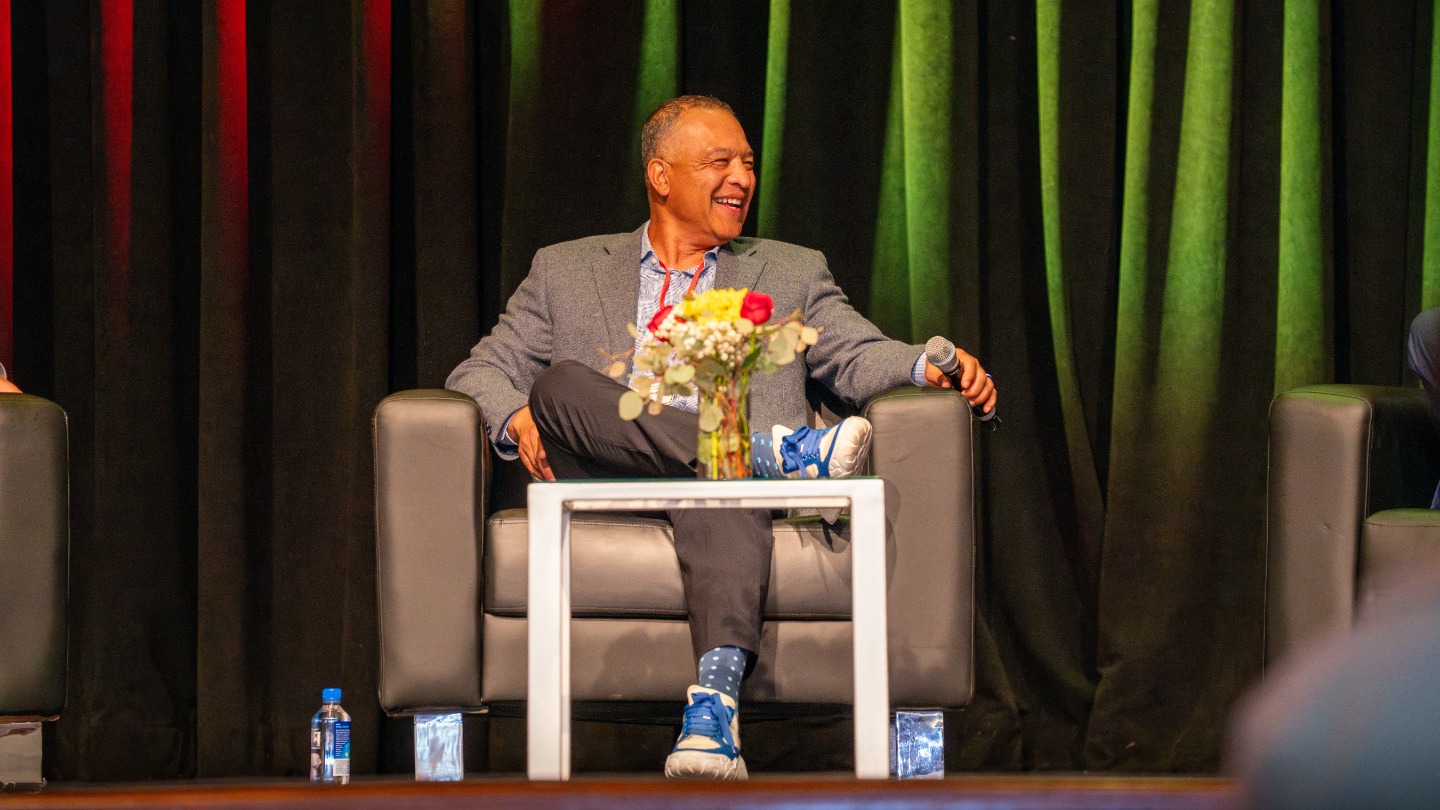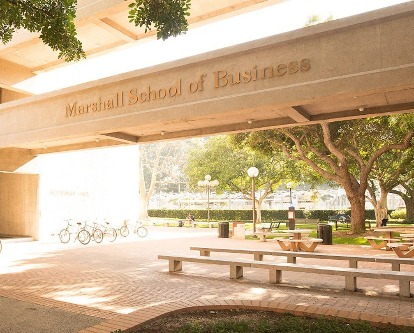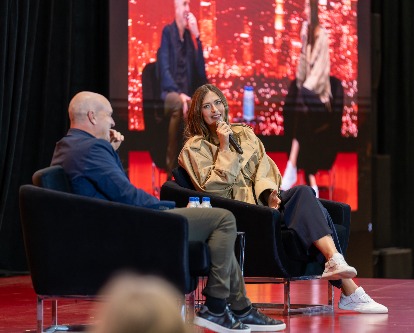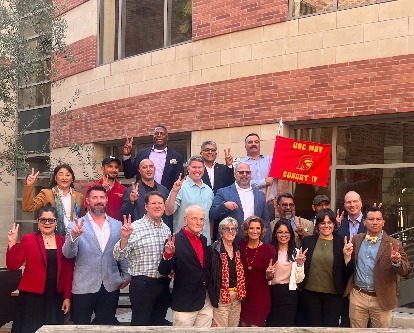“I take pride in how our guys play the game. If you look at our ball club — how we play the game and how we’re respectful — I think that is a reflection of the organization. And I want our fans to kind of really connect with the players,” said Dave Roberts, manager of the Los Angeles Dodgers.
Industry leaders shared similar insights to students during the Sports Business Summit, which offered attendees a glimpse into the sports industry as well as opportunities for mentorship and networking. Hosted by the USC Sports Business Association, a student organization sponsored by USC Marshall School of Business, the annual event convened thought leaders, executives, founders, media personalities, and one World Series manager for an all-day conference on the industry. The event has exploded in its second year.
“Last year, when this event started, it was five students sitting in Fertitta Hall … One year later, we are now sitting here with the largest student-run event at USC,” said Joey Vargas-Brownlee ’25, SBA vice president and Marshall student, in his introductory remarks.
Panels focused on a wide range of topics, including leadership, talent management, sports finance, college athletics, investment, and the ins-and-outs of running a Major League Baseball (MLB) team.
Inside the Dugout
Mark Sweeney, an MLB analyst for FS1, moderated a discussion with Dave Roberts, manager of the Los Angeles Dodgers and Mark Kotsay, manager of the Athletics. The conversation, titled “Inside the Dugout: Baseball Fireside Chat,” covered Kotsay and Robert’s decades-long careers in baseball, from their time as players to their new roles as veteran managers.
Kotsay, who’s been the A’s manager since 2022, reflected on what he expects his players to bring to the clubhouse and field as teammates.
“A good teammate tells you the truth,” Kotsay said. “I think that’s part of our culture right now: Our guys are telling each other the truth — when they’re not performing, they’re not hustling, they’re not being good teammates. That culture is somewhat established.”
Roberts has instituted a similar culture in his nine-year stint with the Dodgers, acting as a mentor for his players on and off the diamond. As a former player himself, Roberts understands there’s more to professional sports than what happens on the field, advising students to seek out their own mentors in life.
“Once my playing career was done, I started to understand what a mentor really was and the value of it,” Roberts said. “I have multiple mentors that are not only in baseball or in sports; they’re in finance, they’re in music, they’re in movies.”
Breaking Boundaries in Sports
Michael Rubin, founder and CEO of Fanatics, joined Jason Kelly, chief correspondent at Bloomberg, for a fireside chat that covered his entrepreneurial journey, the new frontiers of sports, and leveraging relationships into partnerships and collaborations. Above all, Rubin stressed two key traits to success: curiosity and relationships.
“Build great relationships and ask lots of questions. You’ll do so much better,” Rubin said.
The conversation also opened up to questions from students, one of whom asked Rubin for advice to young entrepreneurs striving to balance school with the rigors and challenges of running a startup.
“What I’d say is: you have to be fearless,” Rubin advised. “There’s nothing better than being 18, 19, 20, 21. Who cares if you fail? I think you have to go for it, take your shots, not be afraid to fail.”
Learning from Sports Leadership Legends
Angela Ellis, vice president of Original Content and Entertainment at NFL Media, moderated a panel with Bob Graziano ’80, chairman of the LA Sports and Entertainment Commission; Kevin Demoff, president of the Los Angeles Rams; and Mel Raines, president of Pacers Sport and Entertainment.
The discussion, “Learning from Sports Leadership Legends” covered a variety of topics, namely the development of brand within sports, the impact of the Olympics on surrounding communities, and the integral role Los Angeles plays in the global sports landscape.
“This is now the sports entertainment capital of the world,” Demoff said. “When you look at not only what we’ve hosted, but what’s about to come up: you have the NBA All-Star Game in 2026 at the Intuit Dome; then you have the World Cup, the Super Bowl in 2027, and the Olympics in 2028.”





